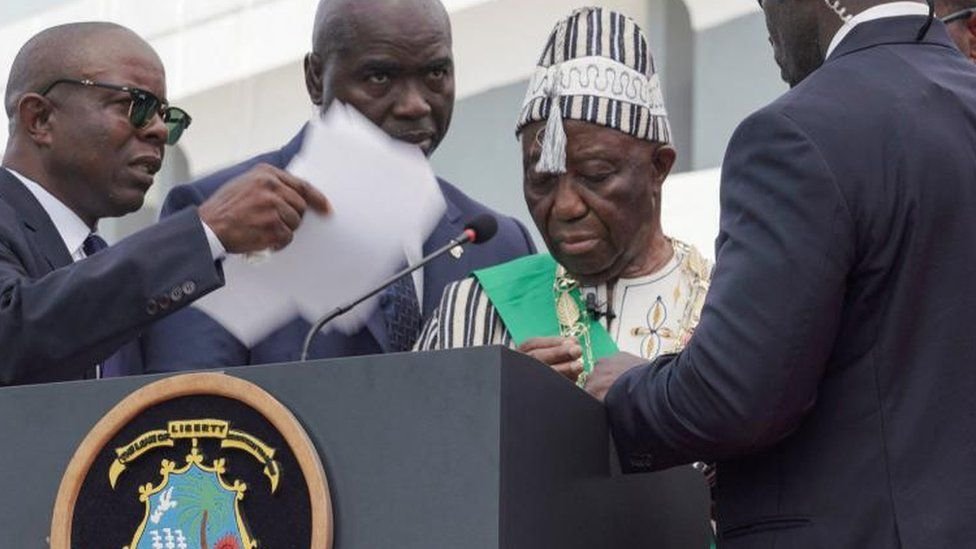As the nation reflects on President Joseph Nyumah Boakai’s first 100 days in office, a comprehensive evaluation by Naymote Partners for Democratic Development offers a nuanced perspective on the achievements and challenges facing the Boakai-led administration.
Amid high expectations and a pledge for transformative change, the government unveiled an ambitious agenda encapsulated in its “100-Day Deliverables” document. This blueprint aimed not only to demonstrate tangible progress but also to lay the groundwork for sweeping national development initiatives. However, Naymote’s assessment reveals a reality characterized by incomplete deliverables and lingering transparency concerns.
Of the 107 deliverables spanning various sectors, the report finds that only 11 have been completed, while 45 remain in progress. Perhaps most concerning is the fact that a staggering 51 initiatives have been left unrated due to a lack of transparency and information, casting a shadow over the government’s accountability mechanisms.
In the realm of infrastructure development and public works, commendable efforts have been made in road construction and drainage cleaning projects. However, despite these strides, none of the initiatives under the Ministry of Public Works have been fully completed, leaving essential projects hanging and communities waiting for promised improvements.
Similarly, while advancements in telecommunications, such as the reactivation of the e-Liberia website and the introduction of a 24-bandary management system, signal progress in digital services, several initiatives in this sector are either ongoing or poorly rated, suggesting incomplete implementation and raising questions about the government’s capacity to deliver on its commitments.
On the education and social welfare front, the government has taken steps such as budget allocations for WAEC fees and the conduct of the national county sports meet. However, critical areas like the optimization of the free tuition program and the completion of school construction projects have been overlooked, leaving many students and communities underserved.
In healthcare and public safety, efforts to combat drug abuse have been declared a national emergency, demonstrating the government’s recognition of pressing public health challenges. However, comprehensive healthcare reform remains elusive, with many deliverables left unaddressed, leaving citizens concerned about the adequacy of their healthcare system.
Transparency and accountability in governance have emerged as pressing issues, with challenges observed in areas such as contract awarding processes and fiscal rules introduction. Urgent attention is needed to address pending commitments and bolster governance accountability, ensuring that the government remains true to its promises and obligations to the Liberian people.
Despite articulating initiatives for agricultural development and food security, concrete actions have been lacking, raising questions about the government’s commitment to these crucial sectors and the welfare of rural communities.
According to Eddie Jarwolo, Executive Director of Naymote, “President Boakai’s first 100 days have set the stage for progress, but sustained efforts and proactive actions are needed to fulfill commitments and address remaining challenges”.
As Liberia moves towards progress, Naymote Partners for Democratic Development emphasizes the need for realistic goal-setting, effective prioritization, and enhanced transparency in governance. The report states that the organization remains dedicated to monitoring and providing insightful analysis to ensure informed decision-making and accountability, holding the government accountable for its actions and commitments to the people it serves.

